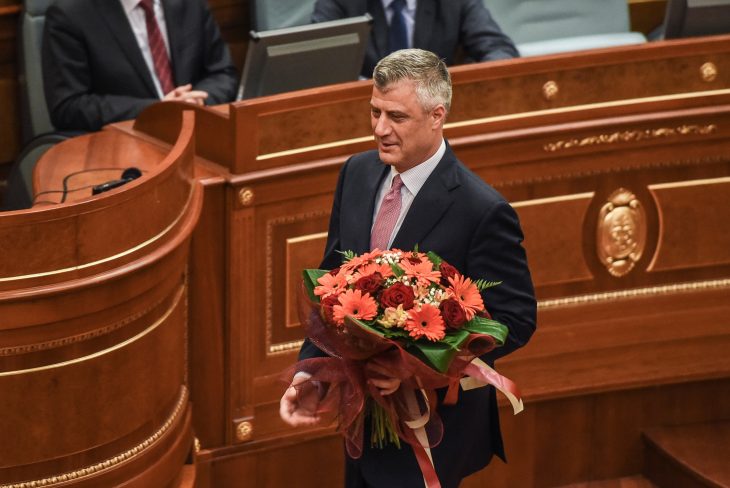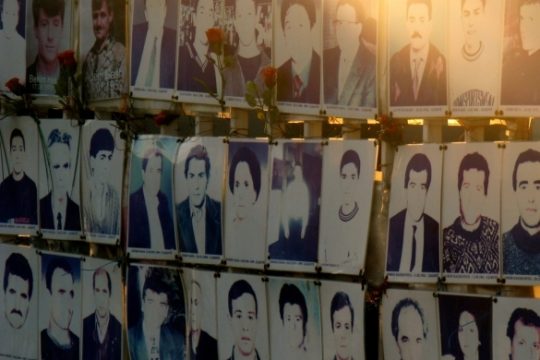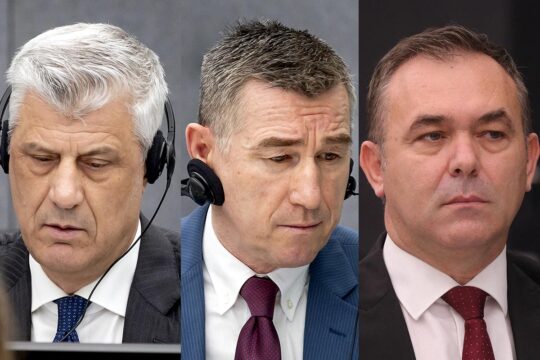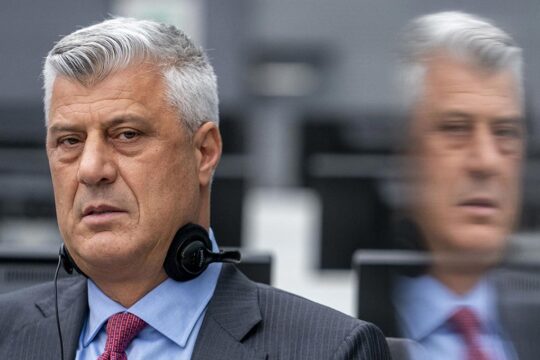Kosovo’s outgoing President Atifete Jahjaga has ratified an agreement between Kosovo and the Netherlands on a Special Court to try senior Kosovo Liberation Army (KLA) fighters for war crimes. But media reports say the process of ratification was not constitutional. Analysts also say that a possible summons for Kosovo’s new President-elect could destabilize the country.
The European Union-backed Special Court is to try senior KLA fighters for crimes against ethnic minorities and political opponents committed during and in the immediate aftermath of the Kosovo War (1999 to 2000).
“With the ratification of this agreement, Kosovo fulfils all its international obligations related to the establishment of the Special Court,” reads a statement from the Kosovo presidency. But Pristina daily Koha ditore claims on its front page that the Special Court agreement was ratified outside the required constitutional procedures, because the Kosovo Parliament has been left out of the process. The paper notes that according to the Constitution, the ratification of international agreements requires two-thirds of votes of all MPs, which did not happen.
The Court will be housed in The Hague. It will be made up of international judges but will operate under Kosovo law. This means, according to Kosovo media, that it will not have the status of an international tribunal, but of a Kosovo court that administers justice outside the country. The first indictments against former senior KLA members are expected by the end of 2016 or early 2017 at the latest.
The Special Court is being set up after Council of Europe Rapporteur Dick Marty found in a 2010 report that serious crimes against civilians were committed by KLA members during the Kosovo conflict, including kidnapping, torture and organ-harvesting. Although no suspects have been officially named, several Kosovo news portals have published an extensive list with names of persons who are allegedly to be tried. The list includes three former Kosovo Prime Ministers – Ramush Haradinaj, Agim Ceku and Hashim Thaci, who was elected as President of Kosovo last week.
Kosovo political analyst Fatmir Sheholli sees the list as mere speculation, but warns that if those persons are indicted, then Kosovo’s fragile society might enter a period of serious turbulence.
“The population is not informed properly about the Special Court and that makes possible such media speculation,” he says. “The persons who are mentioned in some Albanian media outlets as potential ‘guests’ of the Special Court are seen by a majority of the Kosovo population as heroes who liberated Kosovo, and indictments against them could eventually result in ‘a tectonic political earthquake’ in Kosovo.”
Dusan Janjic, head of Belgrade-based NGO Forum for Ethnic Relations says he indeed expects to see some senior Kosovo figures prosecuted, but not necessarily President-elect Thaci among them.
“I see the Serbian public is somehow obsessed particularly with Hashim Thaci. As a lawyer I did not see so far any strong and convincing evidence that might point to his direct responsibility, but I do not exclude the possibility that he might be called by the Special Court, either as a suspect or as a witness,” says Janjic. He sees as positive the fact that Thaci is now Kosovo’s President-elect, saying he should thus be “even more efficient in terms of extraditing some of his former collaborators” to the Special Court.
But Kosovo publicist Veton Suroi writes in an opinion piece in Koha ditore that Kosovo is likely to be faced soon with a deep political crisis.
Suroi sees Thaci as likely confronted with two courts: first the Kosovo Constitutional Court, which is most likely going to examine the constitutionality of his election process; and secondly the Special Court in the Hague, which might “call Thaci in different capacities, including that of an indictee”.
“Regardless of what post Thaci occupies at the time of this call, it is certain that his possible indictment would present a crisis (…). Whatever the decision of the Court towards Hashim Thaci, Kosovo is not likely to emerge out of the crisis zone,” concludes Surroi.
However, another Kosovo political analyst, Nexhmedin Spahiu, sees no further obstacles to the establishment of the Special Court.
“Kosovo is still bearing a legacy of war with war crimes and post-war political murders which, if unresolved, are going to continue holding Kosovo hostage in future,” says Spahiu.
He believes Kosovo cannot move forward without shedding light on all such crimes, and it is therefore of the utmost importance that the Special Court be set up and work at a high professional level.






